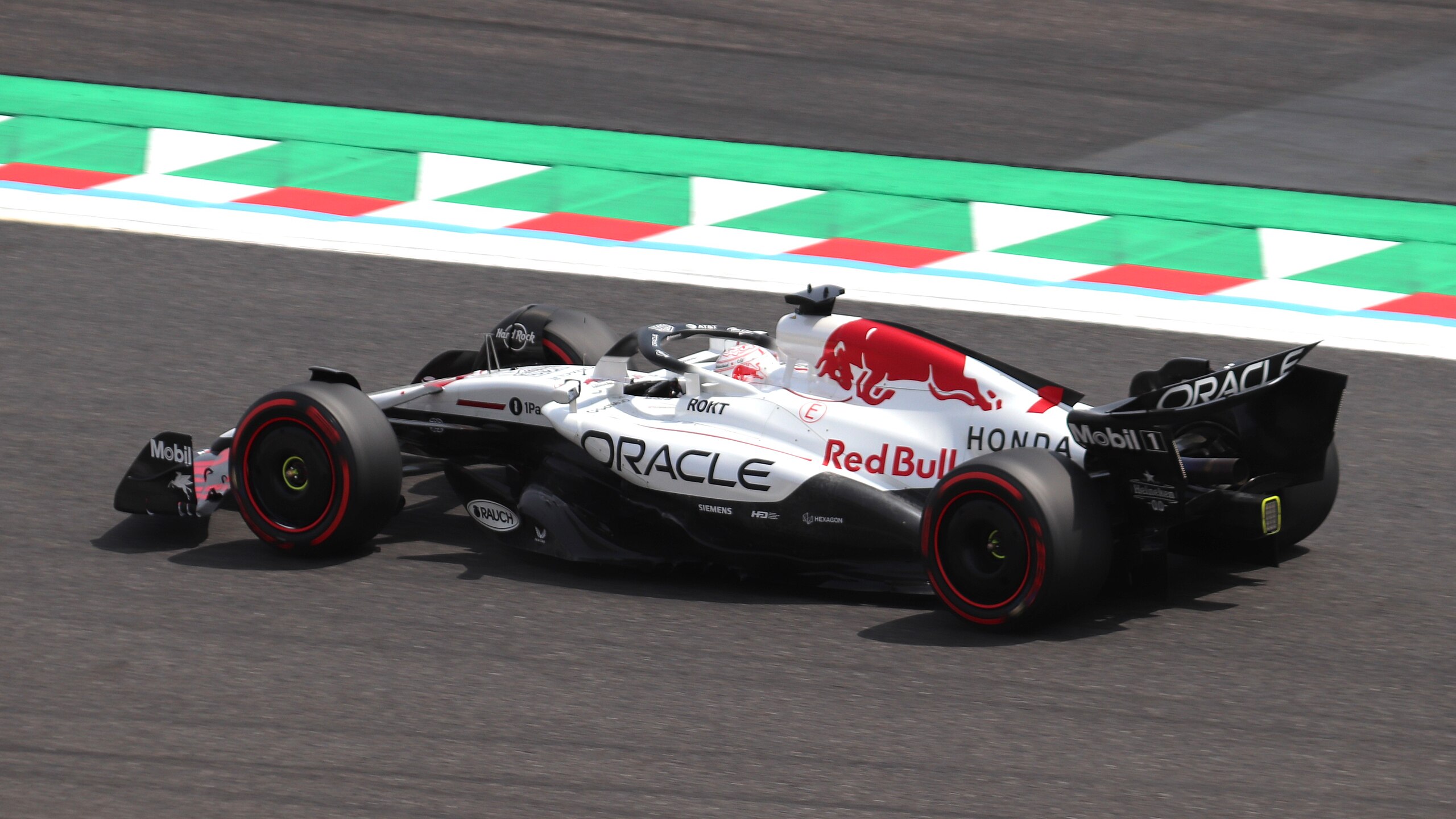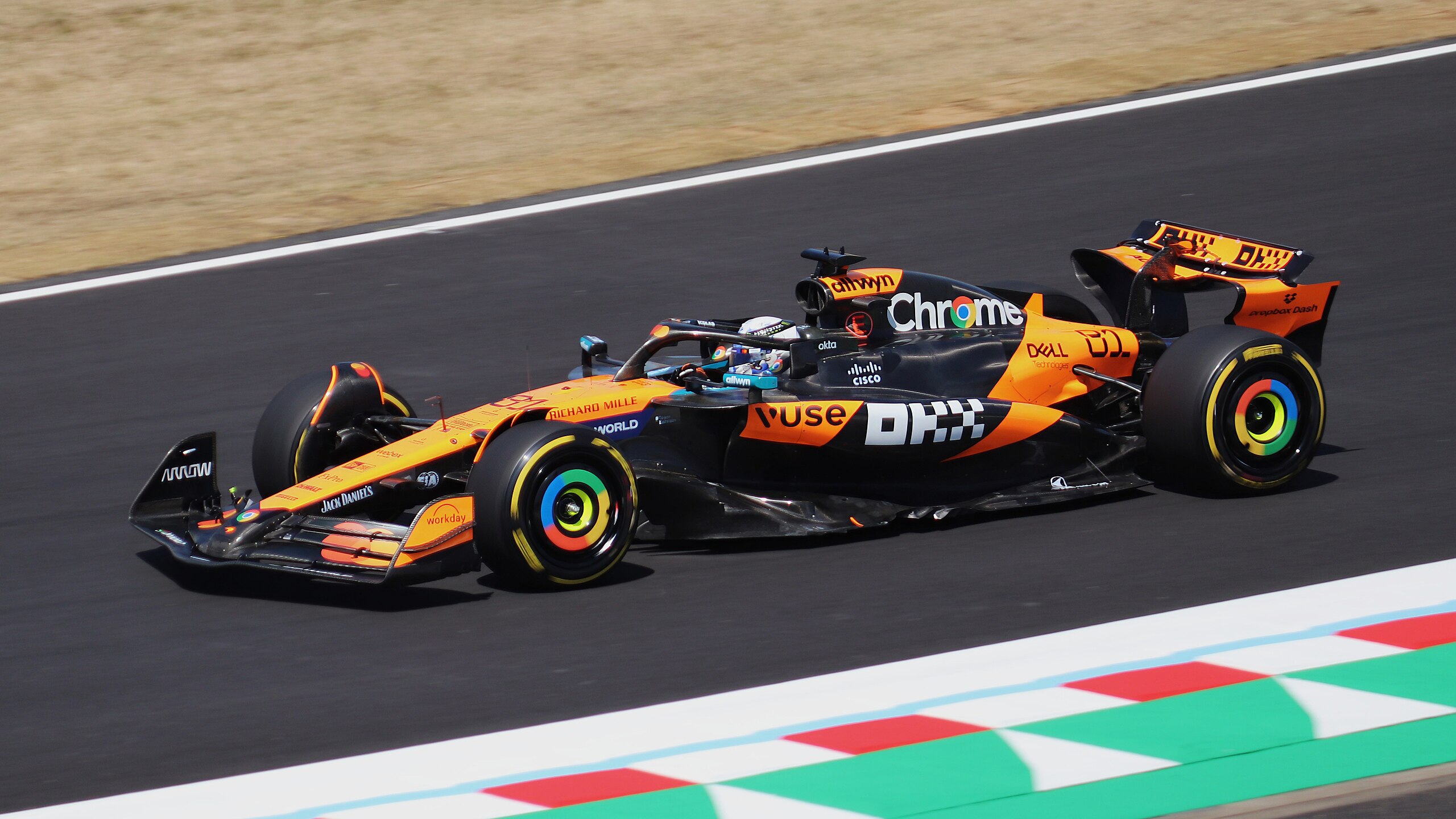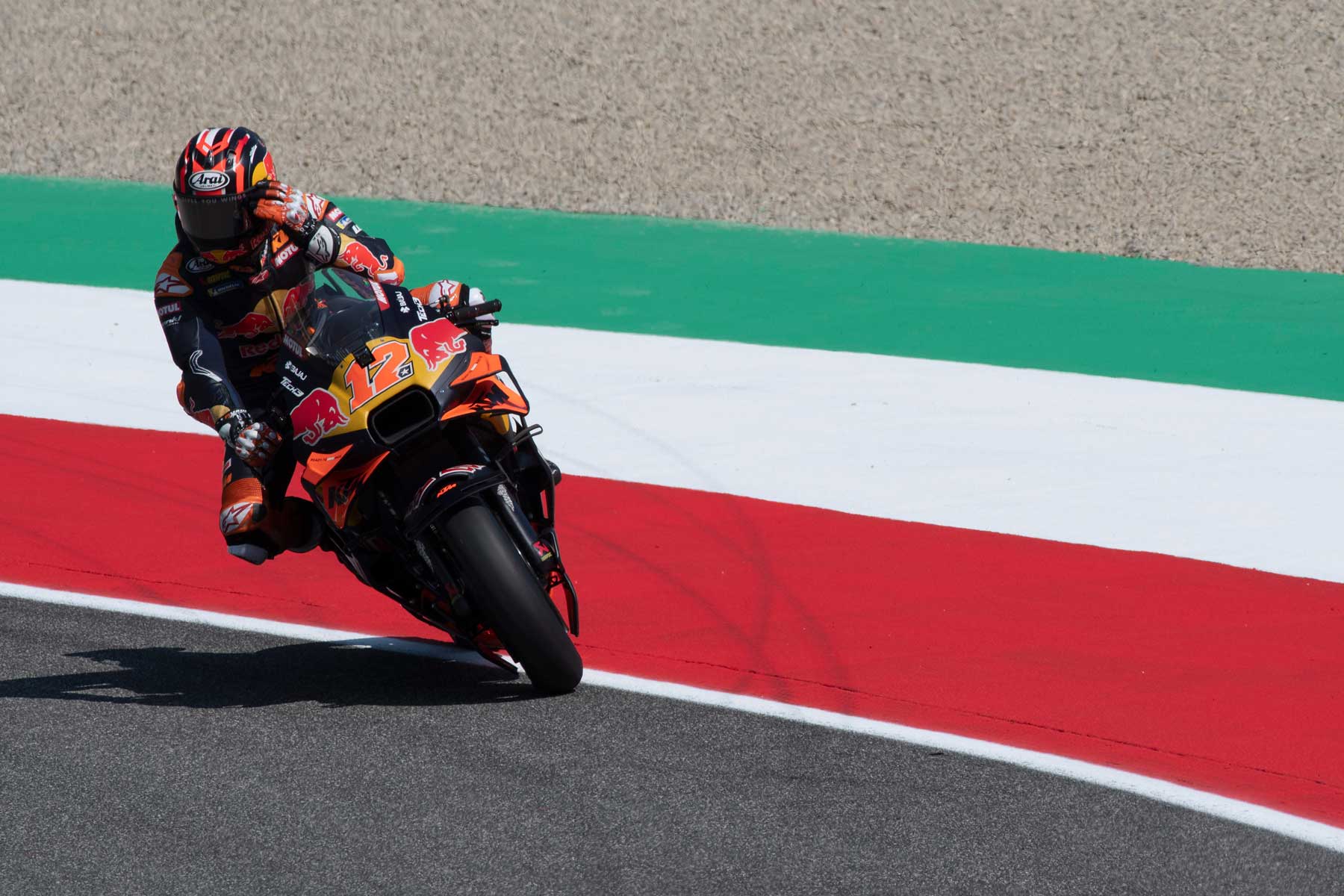Are you willing to sponsor?
Are you ready to explore the transformative power of athlete sponsorship for your brand? Click here to learn more about how sponsorship can help brands grow and thrive in the exciting world of motorsports.
By Silvia Schweiger| Posted November 28, 2024 | In Formula 1
The Formula 1 is always looking for ways to increase the adrenaline and engagement of its race weekends. Among the most notable innovations in recent years is the Sprint race format-acertainly bold initiative that has added more action to traditional Grand Prix weekends.
Since the debut of the Sprint format, the way teams and fans experience a race weekend has changed dramatically, introducing new strategies, more unpredictability, and a different kind of spectacle. In this article, we will look in detail at the characteristics of the Sprint format, its evolution, and the impact it has had on teams, drivers, and fans.
The F1 Sprint is a short and intense race that takes place over about 100 kilometers-moreor less a third of the distance of a traditional Grand Prix. The Sprint race usually lasts about 30 minutes and offers a spectacle that is dense with overtaking and highly adrenaline-fueled, different from the main competition held on Sunday of which it is a condensed compressed race in reduced time. Unlike the Grand Prix, which spans 305 kilometers, the Sprint allows fans to witness a short race, yet one that is charged with tension and action, without the drag factor of a full race.
Introduced in 2021, the Sprint initially served to determine the starting grid for the Sunday race. However, following feedback from teams, drivers and the public, the format was revisited and improved. The main goal has become to make each day of the weekend meaningful and full of competition, turning Friday, Saturday and Sunday into must-see event days.
Since its debut, the Sprint format has been modified several times to improve the show and find the right balance for teams and drivers. Let’s see how it has changed in recent years:
2021 was the debut year for the Sprint format, introduced as a novelty to add more action to the race weekend. Sprint determined the starting grid for Sunday’s Grand Prix, with the top three finishers earning points (3-2-1). This change transformed Saturday from a predominantly qualifying and preparation day to a full-fledged race day, with more tension and uncertainty.
In 2022, the Sprint format underwent some major changes. The scoring system was expanded, with points awarded to the top eight finishers (8-7-6-5-4-3-2-1). In addition, the issue of pole position was clarified: the driver who achieved the best time during Friday qualifying was officially recognized as the pole man, regardless of the outcome of the Sprint. This change made the Sprint more focused on accumulating points, but without taking away the value of the prestige of pole position.
In 2023, the real revolution of the Sprint format was introduced: it became a stand-alone event, with its own qualifying session called the “Sprint Shootout.” This change allowed drivers to push harder, as the Sprint no longer influences the Grand Prix grid. Thus, the Sprint became an opportunity to take more risks without worrying about compromising Sunday’s performance, encouraging bolder maneuvers and more heated competition.
In 2024, the race weekend format was further reorganized. Now Friday will feature a single free practice session, followed by Grand Prix qualifying in the evening. Saturday begins with the Sprint Shootout, which determines the grid for the Sprint, scheduled for the afternoon. The grid for the Grand Prix, on the other hand, is determined solely by Friday’s qualifying, thus keeping the two competitions well separated and offering different strategies for each event.
A typical F1 weekend with Sprint follows this structure:
The introduction of the Sprint format has profoundly affected the way teams and drivers approach the entire race weekend. Here are the main areas of impact:
With only one free practice session, teams have to be very quick in making decisions about car setup. Any mistake in setup could jeopardize both the Sprint and the Grand Prix. The scarcity of time makes the use of pre-event simulations and analysis vital, so that teams arrive at the track already fully prepared.
The Sprint represents a special challenge for the drivers. They must be aggressive to score points, but without compromising the car for Sunday’s race. Since 2023, thanks to the autonomous nature of Sprint, drivers can take more risks, knowing that an accident will not affect their starting position for the Grand Prix. This has made Sprint races more spectacular, with more frequent overtaking and battles.
The Sprint format requires careful management of resources-tires, fuel and mechanical components. With two competitive sessions in one weekend, every decision is crucial to avoid damage and maximize performance in both events. Pressure on components and tires is high, making careful planning critical.
The Sprint format has divided opinion among fans. Many appreciate the presence of competitive races on each day of the weekend, which makes each session more interesting and keeps involvement high. Sprint weekends have become more dynamic events, eliminating Fridays often considered boring and uninvolving.
On the other hand, there are also those who criticize the Sprint format, believing that it reduces the importance of the Grand Prix and creates a more complicated narrative of the weekend. The continued evolution of the format, however, shows F1’s willingness to strike the right balance between innovation and respect for traditions.
The Future of the Sprint Format
As F1 continues to evolve, the Sprint format is likely to be further refined. Here are some of the possible directions:
The Sprint format has fundamentally changed the way a Formula 1 weekend is experienced, introducing an extra dynamic that increases spectacle, team and driver commitment and the importance of strategy. This addition has made each race day more meaningful, introducing new challenges for both teams and drivers to face. Although opinions remain mixed, the Sprint format has certainly brought freshness and unpredictability to Grand Prix weekends.
Whether you are a supporter of the classic Grand Prix weekend or enthusiastic about the innovations introduced with Sprint, there is no denying that this innovation has had a major impact. As F1 continues to improve and refine the format, it will be interesting to see how this bold experimentation will help shape the future of motor racing.
Are you ready to explore the transformative power of athlete sponsorship for your brand? Click here to learn more about how sponsorship can help brands grow and thrive in the exciting world of motorsports.

Associate Director, Executive Marketing and Commercial at RTR Sports Marketing, a London-based sports marketing company specializing in motorsport for over 25 years. Without sports, life is boring
The online platform where you can discover the latest trends, strategies and insights from the exciting world of sports marketing.
View our blog
July 4, 2025
When, in 1950, the Formula 1 kicked off at Silverstone, no one could have predicted that, 75 years later, it would become much more than a sport. Today, F1 is a global phenomenon, a cultural,[...]
Read More
July 1, 2025
In the complex and exciting world of Formula 1, performance no longer belongs exclusively to wind tunnels and race strategies. It also unfolds in boardrooms, brand labs, and experiential mark[...]
Read More
June 26, 2025
This content is password protected. To view it please enter your password below: Password: [...]
Read MoreIn an era where it is possible to get anywhere with a click, there is a strong temptation to approach teams and properties directly for sponsorship projects.
By doing so, we are convinced that we are shortening the value chain, saving time and money. However, these DYI methods are anything but risk-free and what initially appears to be a competitive advantage soon turns into a problem that is difficult to resolve. That’s why there are agencies. And this is why you should rely on us for your sponsorships.
When first approaching a sponsorship or sports marketing project, it is difficult to know immediately which stakeholders are correct, what the decision flow is, and what the right timelines are for each process. Sports is a very specialized field of action, and fitting effectively into its paths can take a lot of time and therefore money. We, on the other hand, know referents and spheres of action and know who to talk to, when and how. So you are also more effective.
Sports is an immense passion, and for our heart colors we would be willing to do anything. But business is a different business, and it is important to make the best possible strategic decisions based on independent research, statistics and reliable data. A sports marketing and sports sponsorship agency like RTR has an objective, 360-degree picture of the scenario and can tell you what is really best for you: which sport, which athlete, which team. This is because we possess a great deal of data and information on ratings, segmentation and attitudes. Because the numbers don’t lie. Never.
Activations are the real heart of sports sponsorship. Without them, there remains only a blank sticker on a motorcycle, car or uniform and no contact with the public, no emotional connection, no impact on the bottom line. Then how do you do it? It certainly won’t be the teams or the athletes who will help you leverage sponsorship and enjoy the many marketing rights you have paid for. To bring out the best in a sports marketing project you need an agency that knows how to use sponsorship to engage the fanbase on the Web, to reach out to Shopping Centers, to organize hospitality, to develop B2B and B2C opportunities, and to get “your” athletes in front of millions of potential consumers.
Would you ever go to the dealer who sold you the car and ask if the competitor’s car is better? No, of course. So, how do you expect to get firm measurements of the effectiveness of your sponsorship if you do not rely on someone super partes? At RTR, we have always worked with independent third-party agencies that allow us to know the return on any exposure of your brand on TV and in the media. In addition, we believe in calculating ROI as the ultimate measure of your success-so we can tell you for every penny you spend how much you are making.
We have been involved in sports sponsorship and sports marketing for more than 15 years. We are consultants in the sense that our goal is to maximize your investment, but we are also an agency that manages the project from start to finish. We have been doing this since 1995 with passion and professionalism, following three principles that have become cornerstones of our business: independence, verticality and transparency.
I would like to highlight the fact that one of the qualities of RTR is its great ability to approach the sponsorship scenario strategically, together with its passionate attitude, its amazing enthusiasm for solving problems, and its high level of professionalism.
Gianluca Degliesposti
Executive Director Server&Storage EMEA
Eurosport is truly delighted with its business relationship with Riccardo Tafà, who has become extremely popular, thanks to his detailed knowledge of the sports marketing sector and his highly diligent attitude to work.
Francois Ribeiro
Commercial Director
Passion and Expertise are the features that I have found in RTR since the very beginning. Serious and reliable professionals but also very helpful, nice and open-mind people, willing to listen and compare different ideas. All the values in which RTR believes make this agency a partner, not just a supplier, a partner with whom we have had the opportunity to achieve significant commercial results in term of success and image.
Luca Pacitto
Head of Communication
We have been working with RTR Sports Marketing for over 10 years. The objectives and the programmes of collaboration continue to be renewed and to grow with mutual satisfaction. I believe RTR is a team of great professionals led by Riccardo Tafà, who I consider a manager of exceptional skills and with a great passion for his work.
Lucio Cecchinello
Team Principal
I have known and worked with Riccardo Tafà since 1995 when we collaborated for the first time on a project for the Williams Formula 1 team. Several clients followed. After leaving Williams to work for Gerhard Berger then owner of the Toro Rosso F1 Team, I turned again to Riccardo to seek his help in finding a tool supplier for the team and Riccardo duly obliged with an introduction to USAG, a partnership with Toro Rosso which endured for five years. I recently started a new role as Group Commercial Director for the renowned Andretti Autosport organisation and I find myself working with Riccardo once again on a number of interesting projects. Why has this relationship with Riccardo endured ? He’s smart, knows the commercial side of sport inside out and back to front and he’s honest and trustworthy. Riccardo Tafà is a “doer” not a “talker”: in over 20 years I have never had a dispute either with him or with a company that he has introduced and each partnership introduced by Riccardo has delivered quantifiable ROI to rights holder and sponsor alike. I can think of no better testimonial of Riccardo’s diligence, knowledge, contact base and hard work than that.
Jim Wright
Group Commercial Director
The online platform where you can discover the latest trends, strategies and insights from the exciting world of sports marketing.
View our blog
July 4, 2025
When, in 1950, the Formula 1 kicked off at Silverstone, no one could have predicted that, 75 years later, it would become much more than a sport. Today, F1 is a global phenomenon, a cultural,[...]
Read More
July 1, 2025
In the complex and exciting world of Formula 1, performance no longer belongs exclusively to wind tunnels and race strategies. It also unfolds in boardrooms, brand labs, and experiential mark[...]
Read More
June 26, 2025
The European Commission has provided Liberty Media Corporation with unconditional approval to complete the acquisition of the MotoGP World Championship. The process of annexing the top motorc[...]
Read More